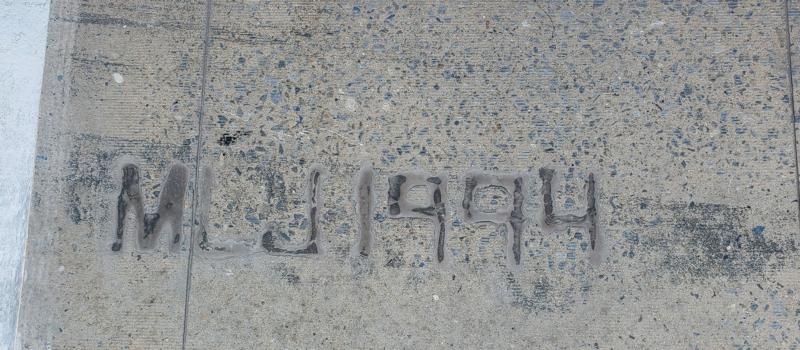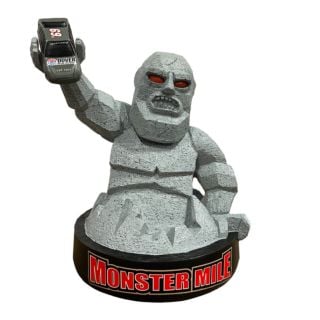American sports cathedrals all have hidden gems to share.
Every track, ballpark and stadium has small nooks and special places that give a glimpse back into history and the special moments that have taken place within their gates.
Dover Motor Speedway is no different. You just have to know where to look.
Marking its 31st year in 2025, the concrete at Dover Motor Speedway is one of the oldest racing surfaces in NASCAR. When the concrete was first spread in the fall of 1994, workers were playing beat the clock.
At Dover, a dirt bridge is built over a portion of the track's backstretch every fall before Bally's Dover Casino Resort's annual fall and winter harness racing meet, putting a deadline on the original efforts.
"It was a hectic time and an interesting project," recalled Jerry Dunning, who supervised the project and retired recently as the Speedway‘s senior vice president and general manager. “We had about six or seven days to work on it before the harness racing season started.”
For those who enjoy the Monster Mile‘s FRONTSTRETCH ACCESS pass, be on the lookout for these hidden gems on your next visit.
MLJ 1994
Next to the outside wall, just before the start-finish line and directly underneath the flagman's stand, three initials and a year are permanently entrenched in caulk on Dover's concrete surface.
The initials, MLJ, stand for Melvin L. Joseph, one of the Monster Mile's founding fathers and owner of a construction company based in Sussex County, Delaware, that built the Speedway in the late 1960s.
Later, when the track was resurfaced from asphalt to concrete, Joseph's firm was involved again.
That transformation took place in the winter of 1994, prior to the 1995 racing season. Before the work was complete, Joseph's initials were added to the surface as permanent marker to his Dover contributions.
49 CIRCLES
More Melvin Joseph marks are located on top of the concrete retaining walls between the track surface and pit road.
The circles mark Joseph's birth and death year (1921-2005), along with his lucky number 49.
1949 was the year Joseph began his first construction firm, and he used No. 49 on his racing cars through the years, including the No. 49 Mustang that his friend Bobby Allison drove to victory in the 1971 Myers Brothers 250 at Bowman Gray Stadium in Winston-Salem, N.C.
The identical circles can be found on top of the retaining walls directly in front of pit stalls No. 15 and 16.
R.T. MADDEN CO. 1994
Just steps from the initials MLJ initials, closer to pit road, this mark at the bottom of the frontstretch near the start-finish line represents a Maryland-based firm which placed the concrete on the world‘s fastest one-mile oval at an average depth of six inches.
Madden also contributed to building Del. 1, the main north-south toll road in Delaware which sits just beyond the Dover‘s frontstretch grandstands.
“Our engineers at the time said there was no reason you shouldn't be able to get 30 years out of the surface,” Dunning said.
As the Monster Mile's famed concrete nears that milestone, be sure to grab a FRONTSTRETCH ACCESS pass to check out these secrets of the concrete.




